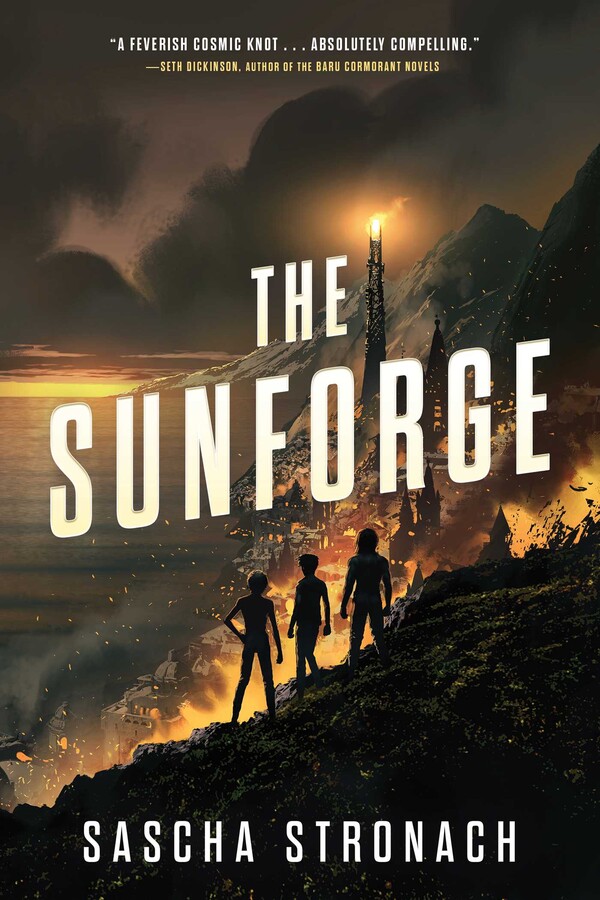Henry Tavit tore out his own brain. That’s an abstraction, but abstraction is everything.
Look, let’s talk about computers. In 2006, a single bit flip in a Toyota Camry glued the accelerator pedal to the floor and took the car into a tree, killing the passenger instantly. The onboard computer between the pedal and the engine had over 10,000,000 lines of code. I bet you didn’t even know there was a computer there, cars are barely mechanical any more—they haven’t been for decades. It took three years to find the bug, and it was one solitary bit flip: 0 → 1, and a car goes into a tree.
Bookout v Toyota Motor Company took eight years. Toyota was found guilty of negligence, ordered to pay three million dollars: eighteen hours of their global profit, and significantly less than the cost of a Camry recall. The ‘05 Camry is still on the market. It’s a popular car; you probably pass at least one every day on the way to work, and every single one has—lurking somewhere in a gnarled grey matter of its codebase—the bug that killed Barbara Schwarz. This really happened. If you don’t believe me, ask your phone.
I don’t want to go into the details of how a Trimplant works so here’s the short version. There are about forty million lines of code in a chip the size of a grain of rice. It perches on the occipital lobe. You turn it on, and you trip balls.
The problem is, it’s always on. It’s not always active, but the difference killed Henry Tavit. When it’s on, it’s still processing data. The human brain is electric: neurons are pushed along their routes by tiny charges of bioelectricity. They factored it into the design, of course: the Trimplant leeches tiny microelectric charges to keep itself running, never more than it needs. Over the nine months, its spiderweb wiring dug into Henry’s occipital meat, and the electricity changed it. Piece by piece, in imperceptible fragments until—nine months after implantation, while he was in his apartment kitchen, knife in hand—a 0 turned into a 1.
The Trimplant was not poorly-designed. It was a marvel. The engineers knew the risks of putting hardware into a human brain, and they spared no expense in development. It hurts to say, because we want villains in these things, but the team who made the Trimplant were highly competent. They accounted for almost everything but they—like the engineers at Toyota, like the engineers who run our power grid, like every engineer for the last hundred years—weren’t gods. They didn’t think it would be a problem. Nobody worries about drowning in a stream but given enough time, streams will carve canyons from bedrock. The almost-imperceptible flow of bioelectricity took nine months, but it changed a 0 into a 1.
Standing in his kitchen at 3am—half-sober, half-awake, making himself a grilled cheese—he started to trip. You ever had a New Certainty? Sometimes, when it leads us into the light, we call it an epiphany. Sometimes though, you wake up with red-eyed demons standing around your bed and your chest so tight it’s about to break open and disgorge your guts and you go oh, okay, I guess this is my reality now. Henry had the second type. He realised—as the drip-drip of water opened up a critical weakness and the ocean rushed in—that his house was alive, and hateful. He was in its belly, being slowly digested. The walls moved in and out, the rough timpani of a monstrous heart.
Henry was a clever man. On some level, he knew what was happening. On another, a dark wave crashed down on him. The cameras in his home caught almost nothing: just a twitch, and a stillness. He stood in his underwear with his knife halfway into a block of cheese, almost comical. His two halves fought in silence. Then, without speaking, he smashed his head against the kitchen window. Once, twice, cracks spiderwebbing out like a cruel echo of the wiring in his brain. Three times, and he opened up a hole. He gulped at the cool autumn air like a fish on the dock, opened up gashes on his chin, his cheeks. Sliced open the soft cartilage of his nose. His expression remained fixed: dead-eyed, staring into the distance.
Whatever part of him stayed cogent kicked in. It knew what was happening. It could stop it, or die. It had a kitchen knife, and very little time. Henry Tavit died performing neurosurgery on himself at 3AM, in his kitchen, with a model of the human brain open on his laptop. He opened a slit on the back of his neck—close, to access the occipital lobe, but inches-as-miles from where it needed to be—and struck his spinal column with the blade. Collapsed to the floor, gasping, no feeling below the neck. He broke his neck when he fell, and blood flowed into his airway and lungs. The dishwasher grumbled, as though the whole house were laughing. Henry Tavit died on his kitchen floor, surrounded by demons.
The Trimplant is still on the market. The next bit-flip might happen to a surgeon, or a pilot, or a president. A recall of installed units is almost impossible, and a recall of units on shelves is costly enough that the accountancy department quietly nodded to themselves and made the company forget. The court case is ongoing. The story appeared on newsfeeds as a suicide. It didn’t last a day before the tide carried it away.
